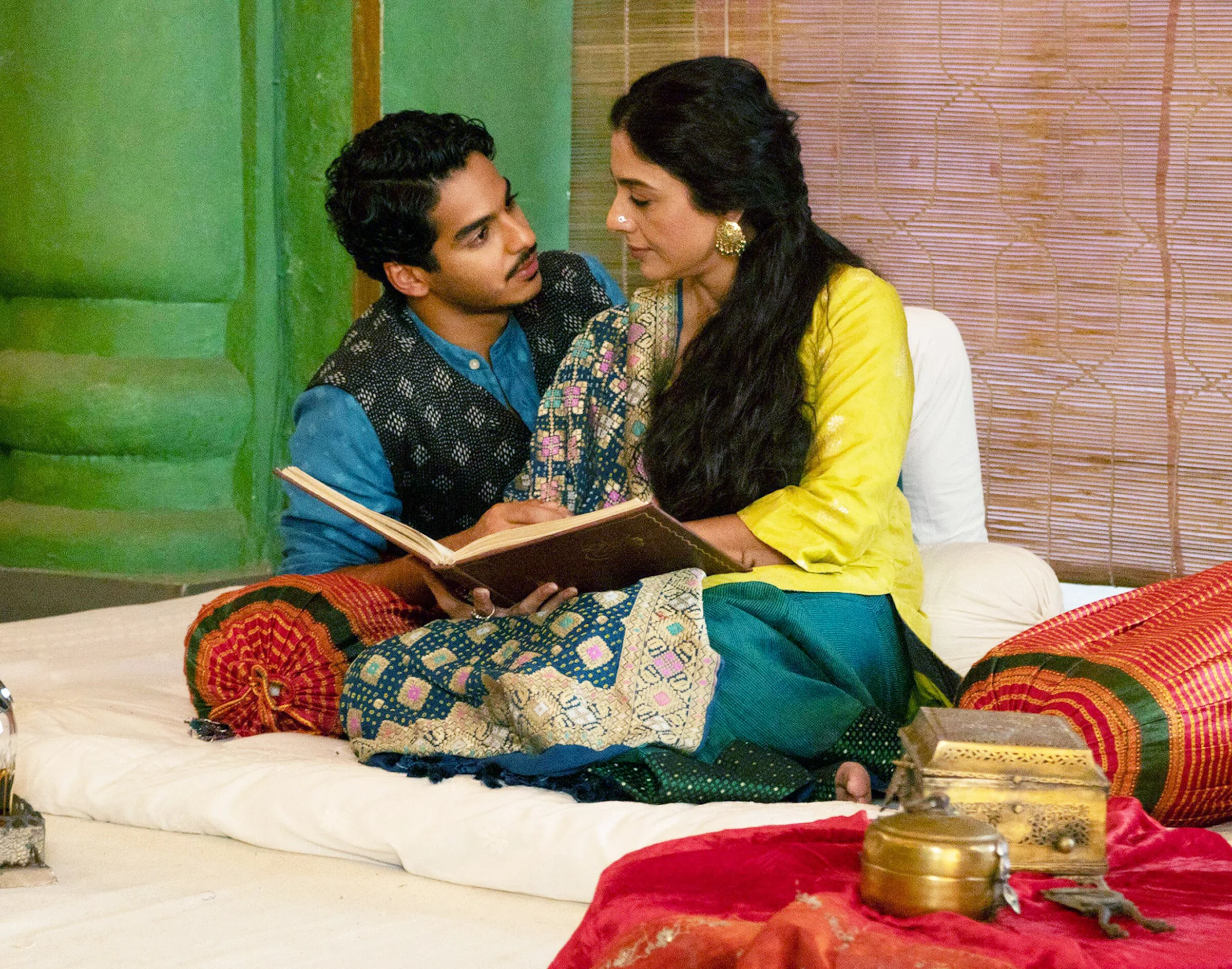SPOTLIGHT
MIRA NAIR’S FINE EAR FOR MUSIC
In Mira Nair’s A Suitable Boy, there’s a sensual courtship between the callow but charming Maan Kapoor played by Ishaan Khatter), the son of an important politician, and the beautiful and highly cultured courtesan Saeeda Bai (Tabu).
By MOHAMED KHAKI
Mira Nair has shown a sure directorial hand from her very first feature film, Salaam Bombay.
The film, which won numerous awards including the National Film Award in India and the Golden Camera and Audience awards at Cannes Film Festival in 1988, put her on the map of world cinema as one of its most exciting young auteurs.
Adapting a well-loved book to screen is fraught business at best of times, and Nair’s adaptation of A Suitable Boy, Vikram Seth’s novel (currently available through Acorn, BBC’s pay platform for non-UK audiences) has been met with mixed reviews.
My primary reservation, which was the reduction of a sprawling 1,368-page novel to only six one-hour episodes, was tempered somewhat by excellent music in this series.
While I have not seen all of Nair’s films, what has struck me about the ones I have, is how good their musical score is. You may want to see on YouTube the opening credits for Salaam Bombay, Queen of Katwe, or The Reluctant Fundamentalist for examples of Nair’s understanding and selection of music to set the tone to her films.
A great example of Nair’s ability to thread music into the fabric of the story is the opening sequence of The Reluctant Fundamentalist, which is based on the book by Mohsin Hamid. A qawwali sung at a private baithak (in raag Malkauns by Fareed Ayaz and Abu Muhammad), is the backdrop to a kidnapping that sets into motion the story, as the opening credits are rolling. This scene shows the brilliant use of music to drive the narrative in the film – in my opinion it makes the writing in the much-praised book seem almost pallid in comparison.
Understandably, the series format of A Suitable Boy does not lend itself to an extended music overture per episode in the way that a longer feature film does. And Alex Heffes and Anoushka Shankar, the lead composers, do a very good job of rendering the prologue, as well as other incidental music through the series.
However, it is the music composed by sitar maestro Ustad Shujaat Hussain Khan and the ghazal singer Kavita Seth that steals the show.
To wit, towards the end of the first episode, Shujaat Khan (performing as Ustad Malik Khan), plays at a public concert to which a distraught Lata, the protagonist of A Suitable Boy, is taken by a well-meaning friend.
Nair weaves multiple narrative threads around the melody that Khansaheb is playing – this lovely melody (based on raag Jhinjhoti) serves as a coda for the entire first episode; an excellent example of an adaptation of literary text to the language of cinema.
Even as Lata is listening to the performance, we see the wistfulness in her eyes reflecting her love for the Muslim Kabir, who she was planning to be with, but is coerced into shunning because he does not belong to her religion. We see a puzzled Kabir waiting for Lata at a poetry recital, beginning to realize that he has been stood up by her.
We also see Lata’s widowed mother cutting up old greeting cards to make new ones, sadly glancing at the portrait of her husband whose early demise has left her with an uncertain economic future and the responsibility of finding a suitable boy for Lata.
And finally, we see the unfolding sensual courtship between the callow but charming Maan Kapoor, the son of an important politician, and the beautiful and highly cultured courtesan Saeeda Bai.
By the end of this brilliant two-and- a-half-minute segment, Nair has gone through dozens of pages of Seth’s novel with superb cinematic brevity.
Nair by no means shortchanges the story where a more languid pacing is needed, which is the case in many scenes between Saeeda Bai and Maan.
“Saeeda Bai is the reason I had to do this (series)”, Mira Nair is quoted in a recent interview in Vanity Fair. The interview also mentions that Nair is a student of classical singing herself, and says of the scenes with Saeeda Bai’s singing, “This is my own fantasy...”
And how beautifully she has indulged her fantasy. Saeeda Bai is shot in sumptuous settings, none more so than the first time we see her at a baithak in the home of Maan’s father, attended by important state officials and high society types.
These include a couple of snarky women, whose exchange you must excuse me for quoting. Just as Saeeda Bai is preparing to sing, says one woman to her friend, “Look! Every time (Saeeda Bai) turns her head, that diamond in her nose-pin flashes like the headlights of a car”. To which her friend says with a wicked smile, “A car that has seen many passengers in its time”.
I don’t remember seeing this hilarious dialogue in Seth’s novel; however, Nair hews pretty tightly to Dagh Dehlvi and Ameer Minai, both poets who are quoted in translation in the book.
Ustad Shujaat Khan plays Ustad Malik Khan in A Suitable Boy.
To the plaintive tones of the dilruba, the stringed instrument (that in my opinion is the most suited as accompanist to ghazal singing), Saeeda Bai begins with Dagh’s Lutf woh ishq mein paaye hai, segueing into Minai’s Mehfil barkhast hui hai, patange rukhsat shamo(n) se ho rahe hai.
Nair exploits these lines by Minai – “the mehfil (gathering) has dispersed, the moths have bid farewell to the flame” to brilliant cinematic effect. Drawn towards the singing, Maan, who is standing outside, starts to walk towards the mehfil, lit by torches as he moves through the garden. This moth is attracted not to the flame of the torch, but to the radiant sun that is Saeeda Bai, played by the luminous actress Tabu.
Nair’s choice of Kavita Seth as composer and playback to Saeeda Bai’s songs is also compelling. She has a lovely voice, not in the fluty register popular in Hindi film music, nor in a tone or style that mimics Begum Akhtar’s; I am sure, much to the relief of her die-hard fans including this writer!
While there is wisdom in the quip by an anonymous wit that “writing about music is like dancing about architecture”, auteur that she is, Nair has blended literary and musical narratives through her skill in cinema
• Mohamed Khaki is on the Raag-Mala Toronto Team.


